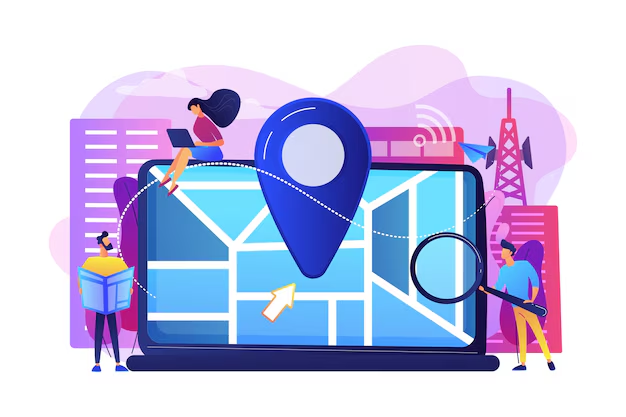
In today’s competitive digital marketing landscape, small businesses face significant challenges in standing out in local search results. Effective Local SEO strategies can make a tremendous difference, ensuring that local customers find your business when searching online. This comprehensive guide will walk you through practical steps and tips to boost your rankings in local search results and maximize your online visibility.
1. Claim and Optimize Your Google My Business (GMB) Listing
Google My Business (GMB) is one of the most crucial aspects of Local SEO strategies. Setting up and optimizing your GMB profile can dramatically improve your chances of showing up in local search results and Google’s Map Pack.
Steps to Optimize Your GMB Listing:
- Ensure your business name, address, and phone number (NAP) are consistent across all online platforms.
- Choose relevant business categories and add detailed descriptions with keywords.
- Upload high-quality photos of your business premises, products, or services.
- Encourage customers to leave reviews and respond to both positive and negative feedback professionally.
A complete and up-to-date GMB profile significantly boosts your visibility in local search results and enhances customer trust.
2. Build Local Citations and Consistency

Local citations are mentions of your business’s NAP on third-party websites such as online directories, social media platforms, and industry-specific sites. Consistent citations on trusted platforms like Yelp, Yellow Pages, and Apple Maps help improve your business’s credibility and authority.
Key Local Citation Platforms:
- Yelp
- Apple Maps
- Yellow Pages
- TripAdvisor (for relevant industries)
- Local Chamber of Commerce websites
Make sure your NAP information is correct and uniform across all platforms to avoid confusion among search engines, which could negatively impact your rankings.
3. Focus on Local SEO Mobile Optimization
With mobile searches surpassing desktop, optimizing your website for mobile devices is no longer optional. Over 60% of Google searches are conducted on mobile, and “near me” searches have skyrocketed, making mobile optimization a must for local SEO.
Mobile Optimization Tips:
- Ensure your website is responsive and adapts to different screen sizes.
- Optimize loading speed using compressed images and reduced scripts.
- Simplify navigation and include clear calls-to-action (CTAs) like ‘Call Now’ buttons.
- Keep your contact information easily accessible for mobile users.
These adjustments will not only improve your rankings but also enhance user experience, leading to higher conversion rates.
4. Use Localized Content Marketing
Creating content in digital marketing with a local focus is an excellent way to attract and engage a geographically relevant audience. Instead of broad, generic topics, target local events, news, and trends in your content. For example, a bakery might write a blog about their role in a local food festival or provide tips on finding the best ingredients in town.
Ideas for Localized Content:
- Write about local events, charity drives, or partnerships.
- Create neighborhood guides relevant to your business.
- Share customer testimonials or case studies from local clients.
Localized content not only boosts engagement but also sends signals to Google that your website is relevant to local searches.
5. Optimize Local SEO for Voice Search

With the rise of voice assistants like Siri and Alexa, optimizing your business for voice search can help you capture more local search traffic. Voice searches tend to be more conversational and long-tail, so focus on natural language keywords and queries that people may use when speaking rather than typing.
Voice Search Optimization Tips:
- Incorporate question-based keywords like “What is the best pizza in [city]?”
- Create an FAQ section on your website to capture common local queries.
- Use structured data markup (Schema) to help search engines better understand your content.
Voice search optimization not only enhances your local SEO efforts but also prepares your business for future search trends.
6. Prioritize Online Reviews
Customer reviews are a critical ranking factor in local SEO. Businesses with a higher volume of positive reviews tend to rank higher in local search results. Encourage satisfied customers to leave reviews on Google, Yelp, or other relevant review platforms. Always respond to reviews, whether positive or negative, to show that you value customer feedback.
Tips for Encouraging Reviews:
- Politely ask satisfied customers to leave reviews.
- Provide incentives like discounts for leaving honest feedback.
- Make the review process simple by providing direct links to your review profiles.
Consistent positive reviews not only improve rankings but also build trust with potential customers.
7. Leverage Social Media for Local SEO
Although social media signals aren’t a direct ranking factor in Google’s algorithm, they can significantly impact local SEO indirectly. Active engagement on platforms like Facebook, Instagram, and Twitter can drive more local traffic to your website and generate valuable inbound links.
Best Practices for Social Media:
- Post regularly about local events, promotions, or business updates.
- Engage with followers by responding to comments and questions.
- Run location-based ads to target local customers.
Social media helps enhance your local presence, builds community trust, and drives traffic to your business.
8. Build High-Quality Local SEO Backlinks
Backlinks from reputable local websites signal to Google that your business is relevant and trustworthy in the community. Focus on obtaining links from local news outlets, blogs, and business directories.
Ideas for Earning Local Backlinks:
- Partner with local influencers or businesses for cross-promotion.
- Sponsor local events or charities to gain mentions and links.
- Write guest blog posts for local websites or organizations.
Building high-quality local backlinks will not only improve your domain authority but also boost your local rankings.
9. Create Location Pages for Multi-Location Businesses
If your business operates in multiple locations, it’s crucial to create separate landing pages for each location. These pages should include local keywords, unique content, and relevant NAP details to optimize for each geographic area.
What to Include on Location Pages:
- Name, address, and phone number (NAP)
- Operating hours and services offered
- Local customer testimonials
- Google Maps integration
Properly optimized location pages can help you rank higher for location-specific searches.
10. Engage in Local Community Events
Being involved in your local community not only builds brand awareness but also creates opportunities for backlinks and social mentions. Whether you’re hosting events, sponsoring local charities, or attending networking meetings, actively participating in your community strengthens your local presence both online and offline.
Ways to Participate Locally:
- Sponsor a local event or sports team.
- Host or attend community events or trade shows.
- Offer workshops or free resources to locals.
These efforts enhance your visibility in the community and contribute to improved local SEO rankings.


Add a Comment